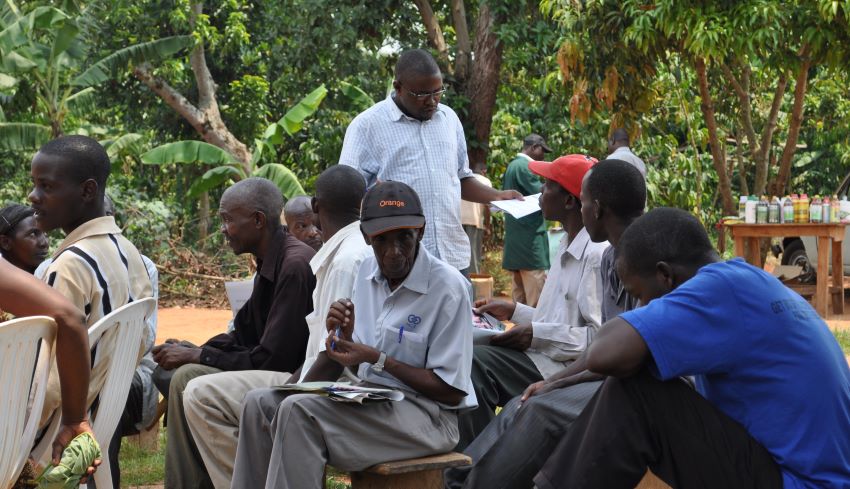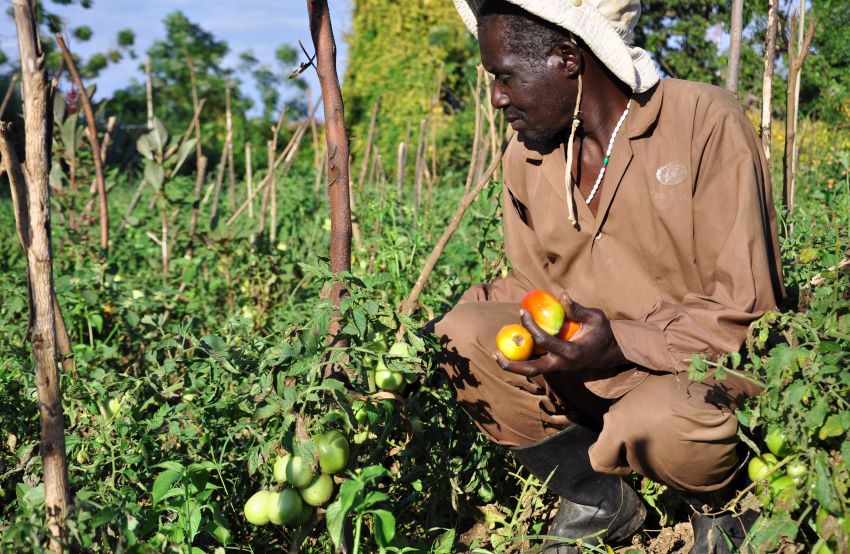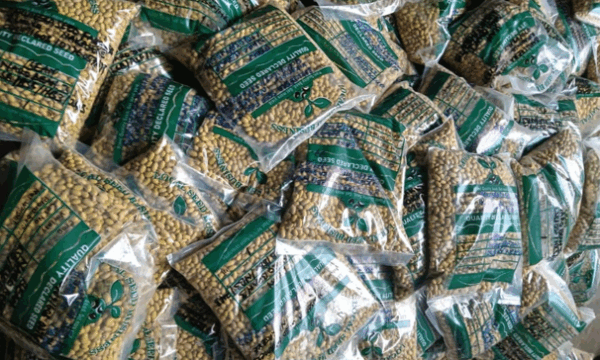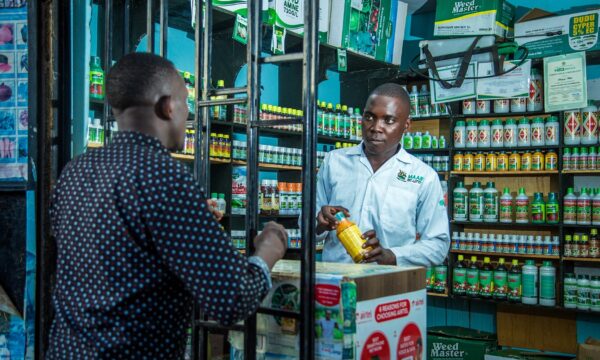CABI has conducted a study into Plant Health Rallies in Uganda and the positive impact they have on farmers’ plant health management knowledge, attitudes and practices. The study looks at what factors enhance or hinder farmer attendance at rallies, as well as how advice received is applied.

Survey put to farmers
A series of questions were put to 717 farmers (61% male, 39% female) relating to their experiences of Plant Health Rallies and how they influence their farming. The survey was backed up with Focus Group Discussions and Key Informant Interviews.
Since 2013, Plant Health Rallies have been piloted by the Ministry of Agriculture, Animal Industry and Fisheries (MAAIF) in Uganda in partnership with NGOs and CABI under the Plantwise Programme. The aim has been to target specific high-impact plant health problems in selected crops.
Plant health rallies
Held in rural locations, among farming communities, Plant Health Rallies (PHR) are used as an extension tool in small-scale farming. They enable targeted messages on common plant health issues to reach large numbers of farmers quickly. Topics are often related to a particular pest or disease, but can also cover soil fertility, planting techniques or what planting materials to choose. Each event lasts up to a few hours and can be repeated several times in a region over the course of a few days.
Over 90% applied advice
The study found that over 90% of attendees applied at least some of the advice they received at PHRs, helping to either completely or partially solve their particular farming problem. These farmers also had better access to formal information sources than non-participants. This was acknowledged by non-participants, with nearly half noting some differences in pest management and production outcomes between themselves and farmers that attended rallies.

As an extension tool
PHRs as an extension tool, have a number of added benefits. Not only do they allow extension workers to reach many more farmers than they typically would; rallies create an environment that enable extension workers, farmers and input suppliers to meet and engage with one another. Extension workers get to hear about a wide range of plant health problems, leading to better strategies to advise farmers.
Barriers to participation
The study also looked at some of the barriers farmers face when accessing and using information provided at PHRs. Unsuitable venue choices were highlighted by some survey participants. Markets are a popular rally venue as they are convenient for organisers. However, such locations are often busy with nonfarmers, which can congest and disrupt learning activities.
Distance to a rally site was also a factor when deciding whether to attend a rally or not. The study found that, on average, attendees travelled three kilometres to a PHR site. Such a distance disadvantages woman given that their time is also taken up with domestic chores and childcare.
An opportunity
The study highlights that Plant Health Rallies are a valuable extension tool in Uganda, helping farmers solve specific problems in their fields. They provided a rare opportunity for large groups of farmers to access reliable knowledge through face-to-face encounters with technical experts during pest and disease outbreaks, such as the fall armyworm. Factors such as timing, location, staffing and publicity are important considerations, if rallies are to reach as many farmers as possible with information that will improve their farming outcomes.
Read CABI Working Paper 22 Effects of Plant Health Rallies on Farmers’ Knowledge, Attitude and Practice in Uganda
Plantwise
Since its launch in 2011, CABI’s Plantwise programme has been introduced to 34 countries globally and 12 countries in Africa. The aim was to increase food security and improve rural livelihoods by reducing crop losses. This was achieved by establishing sustainable networks of local plant clinics, run by trained plant doctors, where farmers receive practical plant health advice. Find out more
Donors
CABI is an international intergovernmental organization, and we gratefully acknowledge the core financial support from our member countries (and lead agencies) including the United Kingdom (Foreign, Commonwealth and Development Office), China (Chinese Ministry of Agriculture and Rural Affairs), Australia (Australian Centre for International Agricultural Research), Canada (Agriculture and Agri-Food Canada), the Netherlands (Directorate-General for International Cooperation) and Switzerland (Swiss Agency for Development and Cooperation).
2 Comments
Leave a Reply
Related News & Blogs
How plant clinics are strengthening crop health services in Bangladesh
When the first-ever plant clinic in Bangladesh opened in Dhaka in 2013, it initially faced a lack of interest due to its novelty and limited awareness among farmers. However, it went on to expand, providing advice to over 17,000 farmers and led to the…
2 July 2025





I’m a farmer in Uganda. Along with colleagues we have never heard of plantwise rallies. Th y sound a brilliant idea. How does one find the information about thm
Woow!!! I live in Arua, West Nile Region in Uganda. How can I be part of this ?